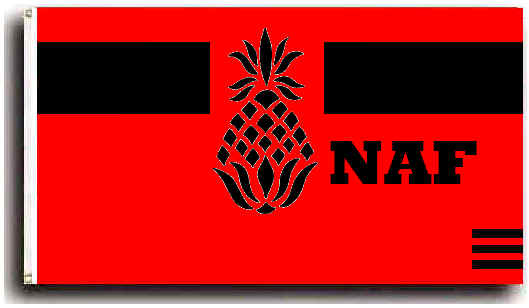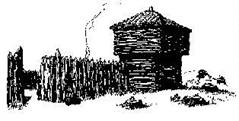
BILL CUNNINGHAM
Staff Writer
|
SMOKE SIGNALS ___________________________ READING FOR FUN Good, solid research is the byword for much of what a serious buckskinner does. In order not only to make his gear as much like the original fur trappers in the period in which he is interested as he can, and his survival skills the equal of theirs, the research also makes him qualified to help others. Slogging through journals and diaries, biographies (that may or may not be accurateósee Pattiesí works, they are filled with inaccuracies) can sometimes be stultifying. Not only can it take weeks or months to find plausible entries about what individual thing is being searched for, but the interpretation of terms used a hundred years ago may be difficult to come up with. This is not to say that such research isnít necessary, itís just that it takes a lot of work. This is especially true if the researcher isnít quite sure of what he wants. There is another way to get ideas that can direct the supplicantís interests and knowledge. Many fun-to-read novels contain accurate information that the author has done the research on. True, it can be difficult to determine which information is right and which is only made up. But, once a skill or term or gear catches the readerís attention, then verifying it through individual research of primary data, that which was written by the person of the time period of interest or written by a qualified historian, it can be more easily verified by a diligent researcher. The trick is to find authors who have done the research and used it to shape the story and events in his novel. People like Kenneth Roberts have done a world of work in ferreting out the details of life in the 1700s on up. Roberts was a diligent researcher, often working in Europe while ordering hundreds works about the period. He ordered books from the library of Congress, specialty libraries, private collections, and various other sources. His research on Robertís Rangers, the coloniesí actions within the militias, the actual militaryís failures and successes, are often breathtaking. The thick books he produced were aided by Booth Tarkington and took a whale of a lot of research, often running into several years. His Arundel is a great and informative read. It details how historical characters survived in the swamps of upper Maine, and how many died there. A wonderful piece of work and great usage of the English language. Dale Van Every wrote The Shining Mountains. A partial list of sources can make oneís head hurt: Original Journals of the Lewis and Clark Expedition; Travels in the Interior of America; Journal of a Voyage up the River Missouri; Account of an Expedition from Pittsburgh to the Rocky Mountains, compiled from the notes of Major Long, Mr. T. Say; Account of Expedition; Journal of Travels; Journal of Travels; The Journal of Jacob Fowler; The Manuscript Journals of Alexander Henry; and several other references. Writers who during their lifetimes wrote prolifically and were best sellers but are now not normally thought of can still be found for reasonable prices on Alibris.com, Amazon used books, Abe books and wherever your favorite bookstores are located. The novels of Janice Holt Giles are well researched and written by a master. Will Henry was a careful writer who turned out award-winning novels that not only are informative, but a joy to read as well. An author who did a major amount of research and wrote much about mountain men and their interface with the California Indians and those peoples skills and methods of surviving, is Bill Hotchkiss. His command of his subjects and of writing skills and language is rarely matched. From all these authors can be found more ideas for experimenting in camps and treks than a normal lifetime can accomplish. From the Hotchkiss book, Fire Woman, I first learned of Ishi, the last wild Indian. And I had a tremendous amount of fun first, reading the books and then researching primary data to verify the skills written about in them, and then going out to see if I could duplicate the success he wrote about. So. . . . try it. Novels usually read faster than non-fiction or primary sources, provide research direction, and can be just pure fun.
Bill Cunningham
___________________________ Page 8
|


 come warm yourself friends
come warm yourself friends